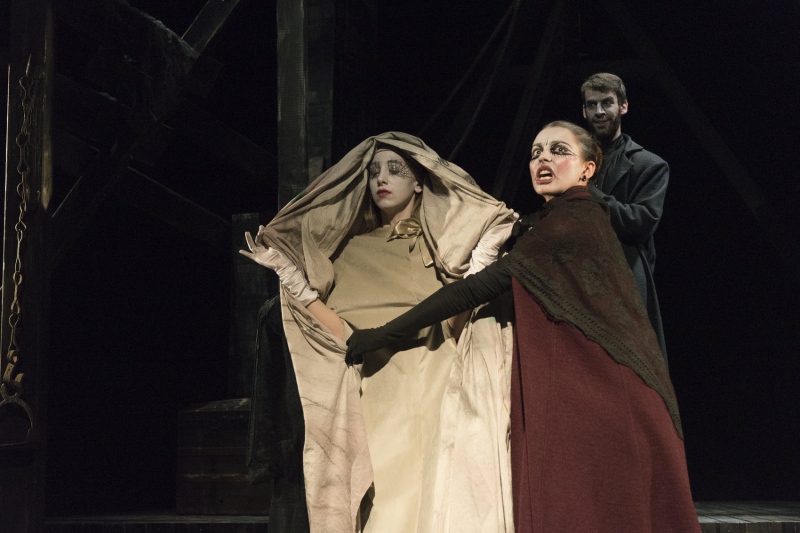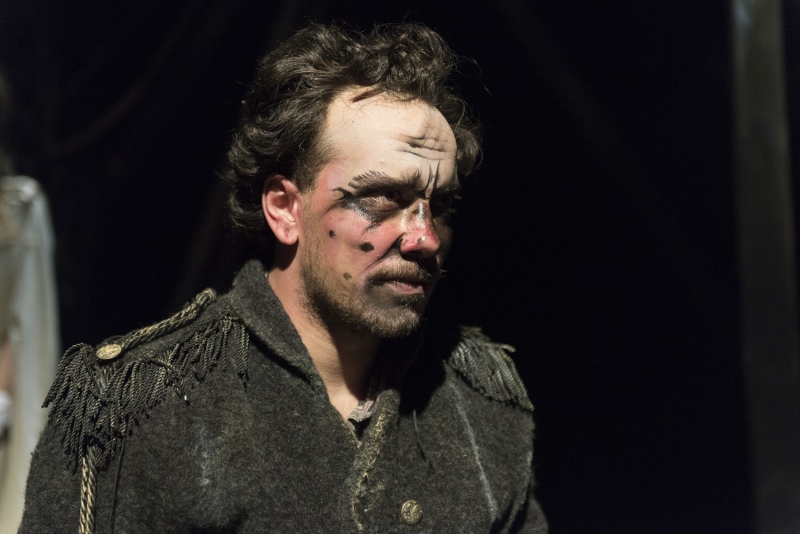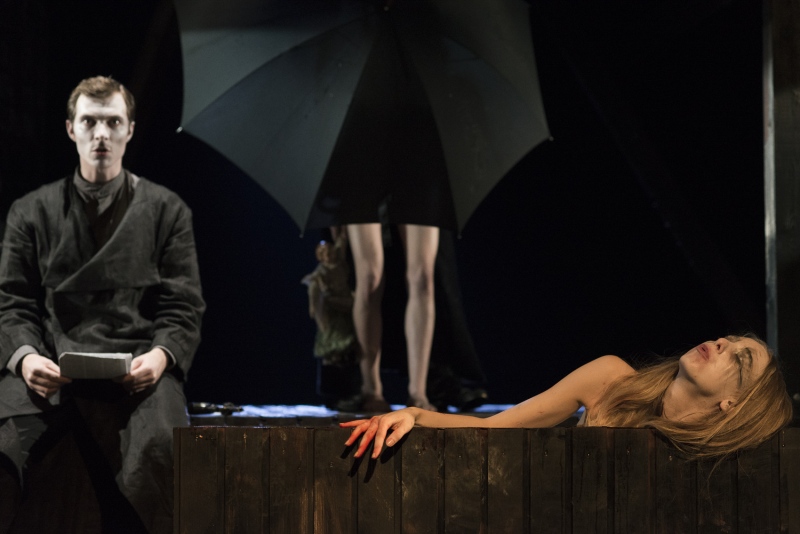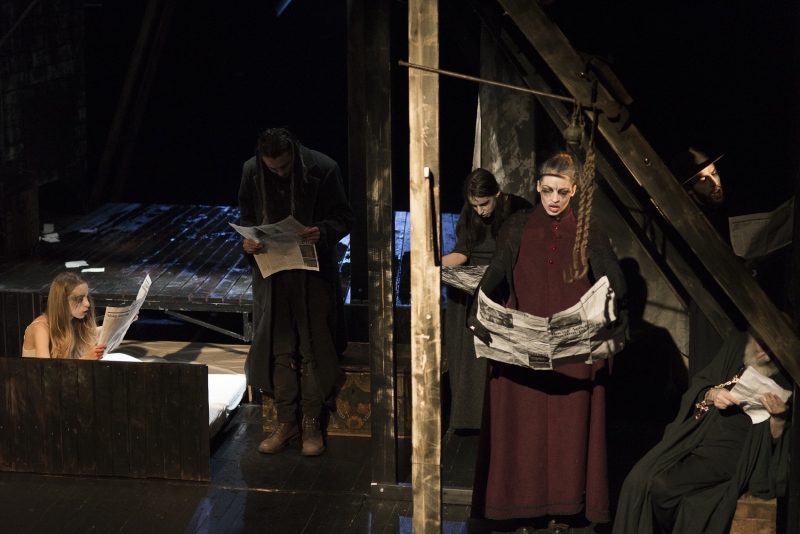Programme Dostoevsky "Chasing the Demons" Demons
Programme Dostoevsky "Chasing the Demons" Demons
110 min
Adaptation and direction: Ivan Dobchev
Set and costumes: Boris Dalchev, Mihaela Dobreva
Music: Asen Avramov
Photographer: Yana Lozeva
Performers: Boris Krustev, Jordan Rusin, Mak Marinov, Nikolay Varbanov, Vasil Duev-Tajg, Nadya Keranova, Elena Decheva, Neda Spasova, Hristina Karaivanova, Violina Dotseva, Veselin Mezekliev, Deqn Jekov
Set and costumes: Boris Dalchev, Mihaela Dobreva
Music: Asen Avramov
Photographer: Yana Lozeva
Performers: Boris Krustev, Jordan Rusin, Mak Marinov, Nikolay Varbanov, Vasil Duev-Tajg, Nadya Keranova, Elena Decheva, Neda Spasova, Hristina Karaivanova, Violina Dotseva, Veselin Mezekliev, Deqn Jekov
THE DEMONS
- "He will come again and his name is a man-god.
- God-man?
- No, man-god. That's the difference ...
The difference is increasingly tangible and we are increasingly aware that behind this naive pun lies the infinite desert of permissiveness. And there, again, the Tempter will meet us, and we will assume His Third Temptation, the Earthly Kingdom will be desired, we will rejoice the Visible, and forget the Invisible, consumerism will become a universal, world religion.
But Stavrogin, a character who appeared quite late in the draft of the Demons novel / Fyodor Mikhailovich acknowledged he has "pulled him out of his heart"/, will radically change the whole concept and the demons that initially have manifestations only in political and social plan, unexpectedly run high in the soul of the charismatic God-Seeker, the Master who inflames the consciousness of all Shatov's likes: "If one prove mathematically to me that the truth is out of Christ, I prefer to stay with Christ, rather than with the truth." But the same Teacher, in just a few years, will make puns with the God-Seekers: "To make a rabbit sauce, there must be a rabbit, to believe in God, there must be God."
- Are you an atheist? Are you atheist now?
- Yes.
- And then, before?
- Just like now.
What happened? What caused this breakneck change? Could the former tremulous confessions of fidelity have simply been said by an erudite who "speaks as a believer"? ... God works in mysterious ways.
Dostoevsky's researchers call "Demons" - "the decapitated novel" because of the cut off, unpublished chapter "At Tikchon’s". This "cut chapter" is at the epicenter of our performance. She is too sinful (it is about an adultery with a 14-year-old girl), too disgusting and an maliciously funereal, and that is exactly the pathos of Stavrogin - to get into the most sacred, "to kill God," as the girl herself says, to provoke Him and then, perhaps, fall into Him. "Through the abysses, to the stars," this is Dostoevsky's indisputable gestus, where every ascension is paid by a "human, too human" sinking into the mud.
Stavrogin and his protagonists (because everyone in our performance "plays" Knyaz Stavrogin), they are his variants, admirers and victimes, they will go together through his confession and penitence.
"They know and do not know,
That action is suffering
But the suffering - action. "
Т. S. Eliot
Ivan Dobchev





